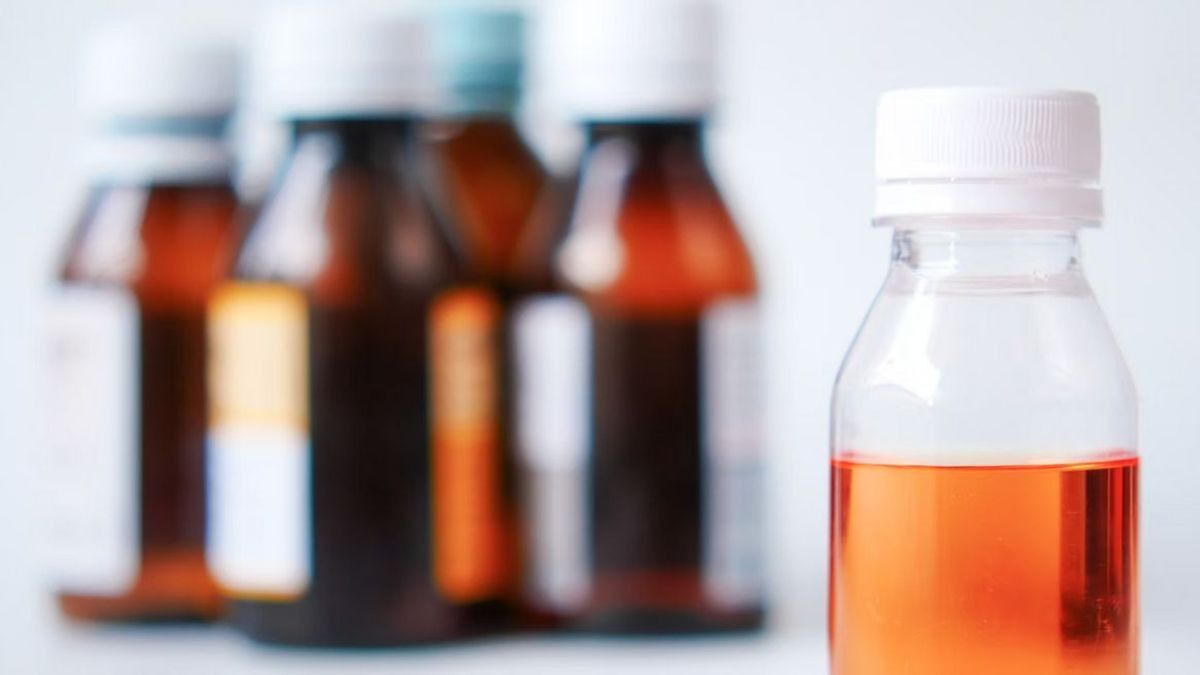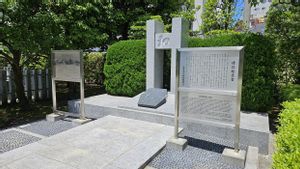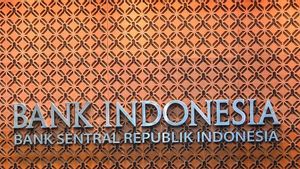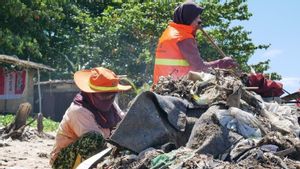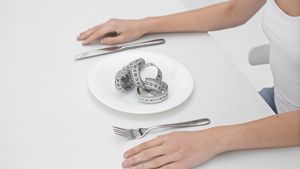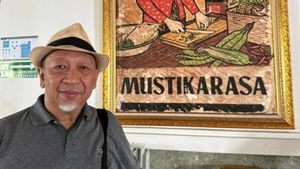JAKARTA - Head of the DKI Jakarta Health Service, Widyastuti, explained the reason for prohibiting the use of all sirop drugs to avoid atypical acute kidney failure allegedly caused by cypress ethilen glycol (EG) compounds and dietilen glycol (DEG).
In fact, previously the Ministry of Health (Kemenkes) had released 156 types of sirop drugs that were safe for use by the public.
Widyastuti revealed that the Health Office received recognition from the public who were confused in sorting out which types of oabt sirop were allowed and which were prohibited from being consumed based on the release of the Ministry of Health.
"Based on our experience of talk shows or outreach to residents, sometimes there are residents who don't really understand or may not have had time to see the circular or release at the central level," said Widyastuti at the DKI Jakarta DPRD Building, Tuesday, November 8.
Thus, to facilitate risk communication over the handling of cases of acute kidney failure, the DKI Health Office chose to prohibit its citizens from taking all sirop drugs.
"When residents are hesitant, we don't want to take risks because there are residents who are confused about seeing a list of drugs. So, we make it easier. But at this time we are responding with policies at the central level," explained Widyastuti.
A few days ago, the DKI Health Office's Instagram account banned the public from providing sirop drugs for the consumption of sick children, both recently purchased and stored at home.
"To all parents for the time being, don't give medication in the form of mediation or liquid to sick children," wrote the Instagram account of the health office, quoted on Monday, November 7.
If the child is sick, the DKI Health Office recommends that parents do initial treatment to meet the needs of fluids, warm water compresses, and wear thin clothes on their children.
Then, people can use other forms of medicinal preparation, but with doctor consultations, such as tablets, capsules, or Puyer; suppositoria (anal); injection (injection); and infusion.
"However, if you have to give medicines to your child, then use drugs according to the rules of use, don't take drugs that exceed the dosage, read warnings about drugs, drugs don't expire, don't take the remaining Sirop drugs that are already open, and get drugs from licensed / official pharmaceuticals," he wrote.
Meanwhile, the Spokesperson for the Ministry of Health, Mohammad Syahril, revealed that currently there are 156 types of sirop drugs that are safe to use. This is because these drugs have passed a study conducted by the Food and Drug Supervisory Agency (BPOM).
"BPOM has conducted rapid research on these 156 drugs. Well, it is considered that 156 (drugs) are safe to reuse, which is in accordance with the circular from the Director General of Health Services at the Ministry of Health. So, please use it," said Syahril in a virtual press conference, Monday, November 7th.
The English, Chinese, Japanese, Arabic, and French versions are automatically generated by the AI. So there may still be inaccuracies in translating, please always see Indonesian as our main language. (system supported by DigitalSiber.id)
Tags les plus populaires
#Prabowo Subianto #Donald Trump #Inonder #Ramadan #oil #gazaPopulaire
11 Maret 2025, 04:25
